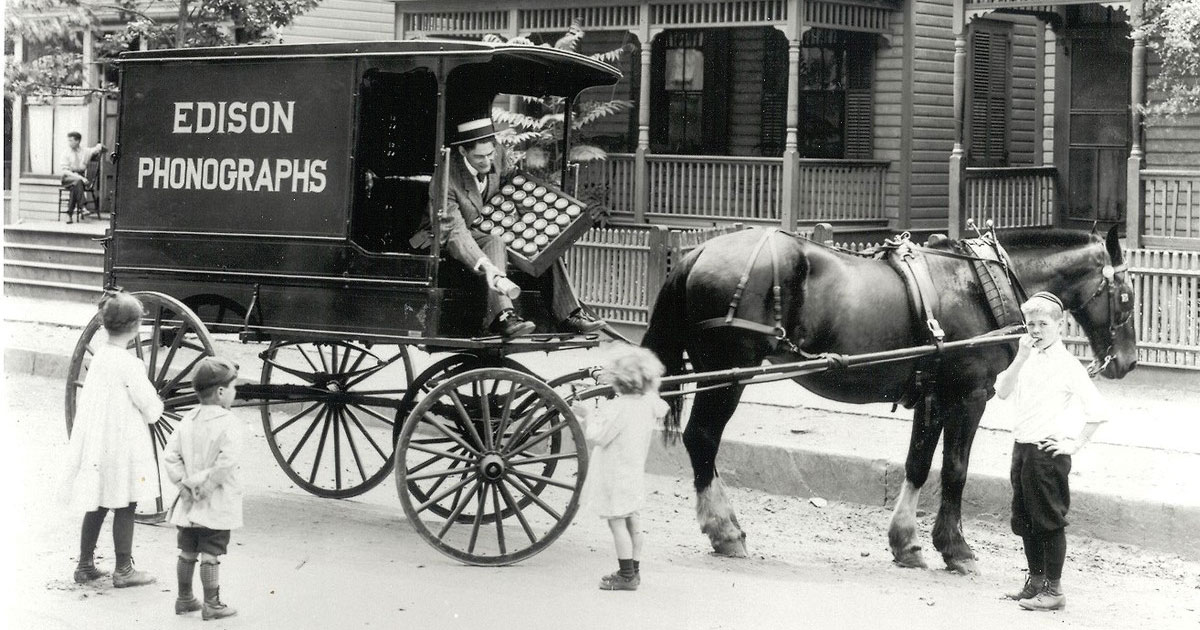BY MARK MATHOSIAN
Since many readers and advertisers of Forsyth Woman are in business, I thought I would share some time-tested sales tactics used by the greatest inventor and salesman of all time, Thomas Alva Edison. I gleaned the sales tactics from The Edison Phonograph Monthly, a sales and marketing tip sheet Edison provided to phonograph jobbers from 1903-1906 during the peak period of phonograph and records sales. You may be surprised at how many of these tips apply to your business today.
Advertising Brings Customers (February 1908)
“We have done two things. We have made a Phonograph so perfect that a hearing means a sale. We have advertised this phonograph until it is known to everybody who can read. You must do the rest. You must carry it in stock, believe in it, show it, talk it, and exhibit its powers. Do not let a Phonograph customer get to your store before the Edison does. If you do, our advertising, so far as your store is concerned, is wasted.”
Courtesy Pays (January 1908)
“Some time ago we referred a retail inquirer to a Philadelphia Dealer, and he bought a Phonograph and a good supply of records. The inquirer later wrote as follows: ‘I must say a few words, also for the young man you recommended to me, for his willingness in every way to instruct me in the management of it – for he displayed much patience in order to get me to understand all that was necessary to give satisfaction.’ Because of his courtesy and kindness, this Dealer has made a friend of his customer that no competition can effect. It probably took a little more time than usual to be courteous, but that it will pay handsomely in future sales we have no doubt.”
Keeping Customers (April 1912)
“Every Dealer undoubtedly keeps a list of all persons to whom he sells Phonographs, but does every Dealer go over this list carefully every month and note the names of any Edison owners who have failed to buy Records that month? The maintenance of every customer’s interest is a vital point in the business, for an idle Phonograph in any home is a poor advertisement for any Dealer, and would seriously affect his phonograph sales.”…
Get All the Publicity Possible (July 1912)
“When people begin to talk about your progressiveness, your future success depends upon your doing everything possible to keep them talking. Whatever form of advertising you may be using can be backed up and made more efficient by linking it with your displays. …” Brighten up the ‘face of your store.’”
Make Complaints an Asset (April 1916)
“Did you ever stop to consider that the complaints you receive from your consumers may be made valuable assets in your business? ‘Service’ is the keynote of successful business today, and the dealer who provides service wins patronage. A complaint invites service by providing the dealer an opportunity to show his willingness to serve. And by giving him a chance to take a friendly interest in the welfare of his customer, an interest that will win him the friendship and the loyalty of the one who came to complain. Try to avoid causes for complaints but, when they are made, be grateful for them. Welcome them because they give you an opportunity to emphasize your willingness to provide service for your patrons.”
The Dangers of Knocking (April 1916)
“It is a generally accepted business principle at the present time that it never pays to knock your competitor or line of goods he is selling. A dealer who asserts that the line handled by his competitor is cheap and inferior is usually suspected of underhanded dealing and the customer reasons that a merchant who will attempt to strike a competitor in the back will not hesitate in taking unfair advantage of one who trades with him. It is now recognized that it is not necessary to run down a competitor’s line in order to boost the goods that you are selling. Indeed, it is considered that this is the poorest and costliest kind of business policy. It is only necessary to show a customer that your line of goods is superior to the line of your competitor in order to make a sale.”


















